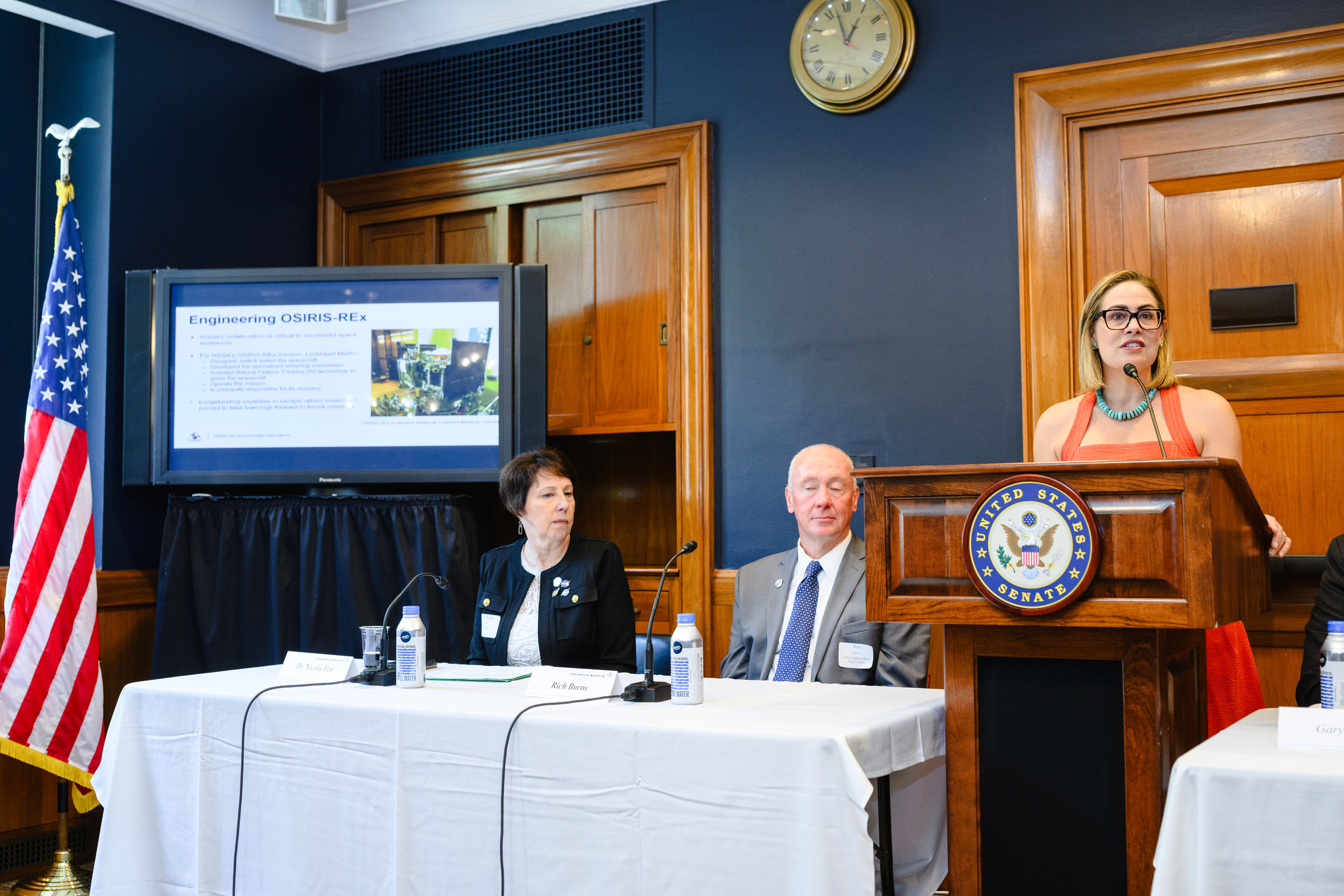Senator highlighted the University of Arizona’s role in advancing space innovation and exploration through the OSIRIS-Rex mission
WASHINGTON – Arizona senior Senator Kyrsten Sinema – Chair of the Space and Science Subcommittee – spoke about how Arizona’s leadership on the Origins, Spectral Interpretation, Resource Identification, Security-Regolith Explorer (OSIRIS-Rex) mission advances space exploration and innovation at the Space Transportation Association’s OSIRIS-REx Mission Briefing.
The OSIRIS-REx mission is a planetary body sample retrieval mission that is managed by the National Aeronautics and Space Administration (NASA), and the Principal Investigator is from the University of Arizona. The samples will be studied in Tucson at the University of Arizona Lunar and Planetary Laboratory.
“Arizona has long led the way in innovation and scientific exploration, and our unique role partnering with NASA to make the OSIRIS-REx mission a success and deliver samples of asteroids to Earth in just a few weeks exemplifies how critical Arizona can be to the future of space innovation,” said Sinema, Chair of the Space and Science Subcommittee.
The Senator noted that, in addition to the groundbreaking discoveries OSIRIS-REx is making, the mission fuels economic growth for Southern Arizona – generating over $183 million for the local economy.
Sinema discussed her role in ensuring the bipartisan Chips and Science law – legislation she led boosting semiconductor manufacturing, reducing reliance on foreign countries, and enhancing the United States’ global competitiveness – reauthorized NASA. Specifically, Sinema incorporated provisions she wrote as a leader on the Space and Science subcommittee directing NASA to fund key science research at Arizona universities, maintaining the International Space Station, and sending the first woman and person of color to the moon as part of the Artemis mission.
The Senator committed to continuing to support NASA’s science portfolio and ensuring Congress passes appropriate levels of funding to boost both planetary defense and planetary body missions, especially those led out of Arizona.

